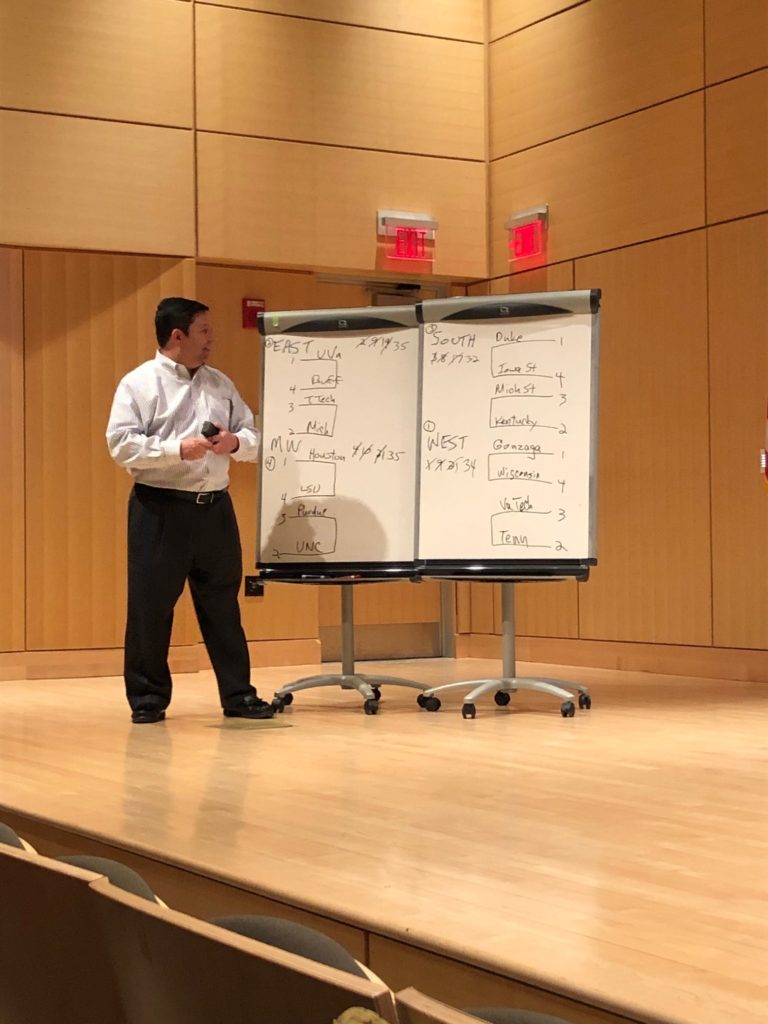
Start: 1:55pm 2/24/2019; End: 5:14pm 2/24/2019
CAMBRIDGE, MA – On a rainy Sunday afternoon in the basement of the Cambridge Public Library, Joe “Joey Brackets” Lunardi provided an overview of bracketology to the Cambridge community.
Lunardi, who works for ESPN as an analyst and commentator, is largely known as the creator of bracketology, the “art and science” of predicting the 68 teams who will be chosen to compete in the March Madness, the NCAA Men’s Basketball Tournament.
Lunardi started the lecture by providing background on himself and the origin of bracketology. A lifelong sports fan, Lunardi began his sports analytics career as a stat-keeper for his high school basketball and football teams. Later, as a student at Saint Joseph’s University in Philadelphia, Lunardi continued keeping stats for the basketball team. After graduating, he worked as a sports reporter covering college basketball. Later, he became the publisher of “The Blue Ribbon College Basketball Yearbook,” and was eventually invited to publish his rankings and predictions for the March Madness field on ESPN.com for the first time in 2002. The rest is history.
Lunardi educated the audience on the technical and operational requirements of filling the 68 team field for the tournament. Outlining a “multiple overlapping votes” system, Lunardi explained how representatives from the major NCAA conferences convene in New York City over 6 days in early March to iteratively vote on the teams to be invited and subsequently on the seeding of those teams.
Perhaps most interestingly, Lunardi took time to explain some of the underlying revenue mechanics of the tournament. Helping to illuminate the many economic incentives that explain individual school and conference behavior, Lunardi argued that the economic environment is increasingly hostile to “mid-major” universities. As the tournament is increasingly commercialized, Lunardi argued that we will see fewer lesser-known programs compete, replaced by major universities with historically successful basketball programs.

The event closed with an interactive session in which members of the audience helped Lunardi to fill out an abbreviated bracket, given the current state of college basketball (the real bracket will not be officially created for another few weeks).
If one thing is clear, the affable and charismatic Lunardi is a true lover of college basketball, happy to share his passion and knowledge with anyone who will listen.
